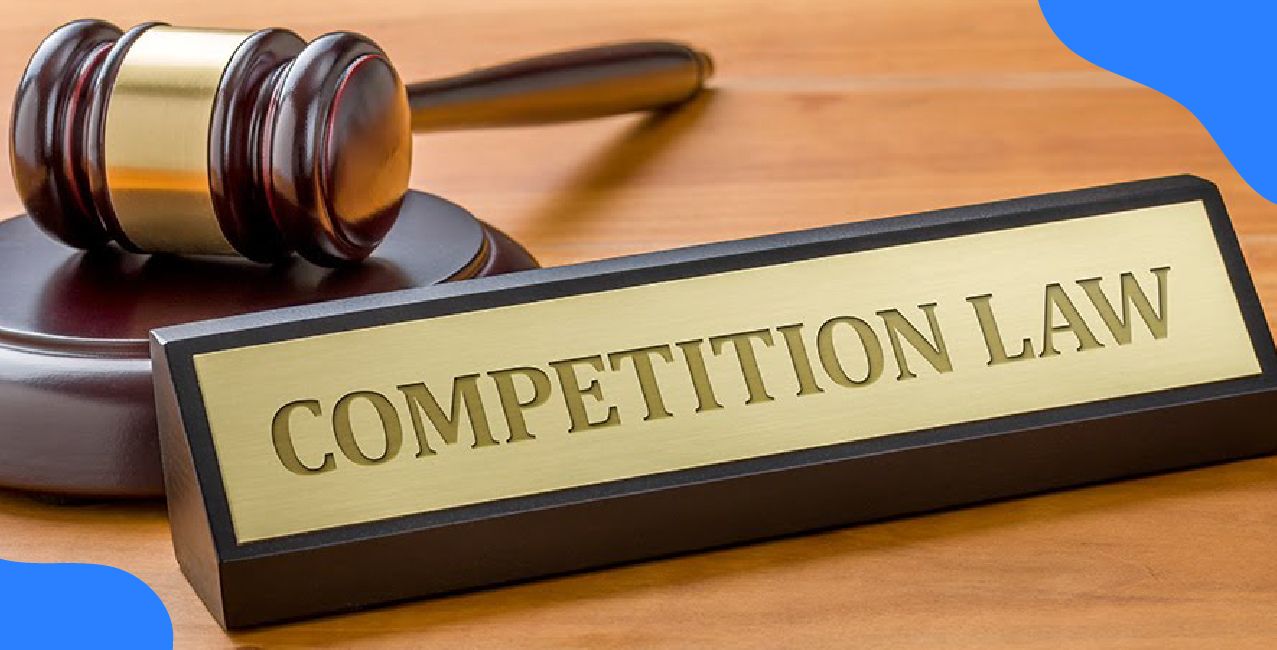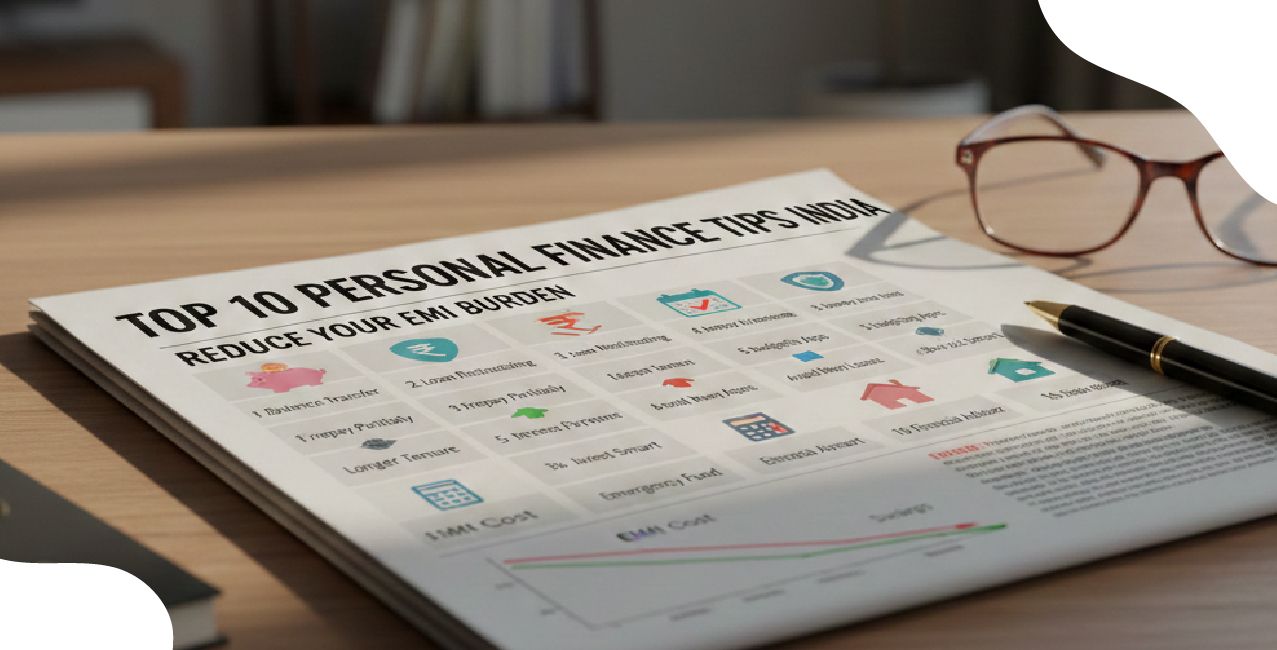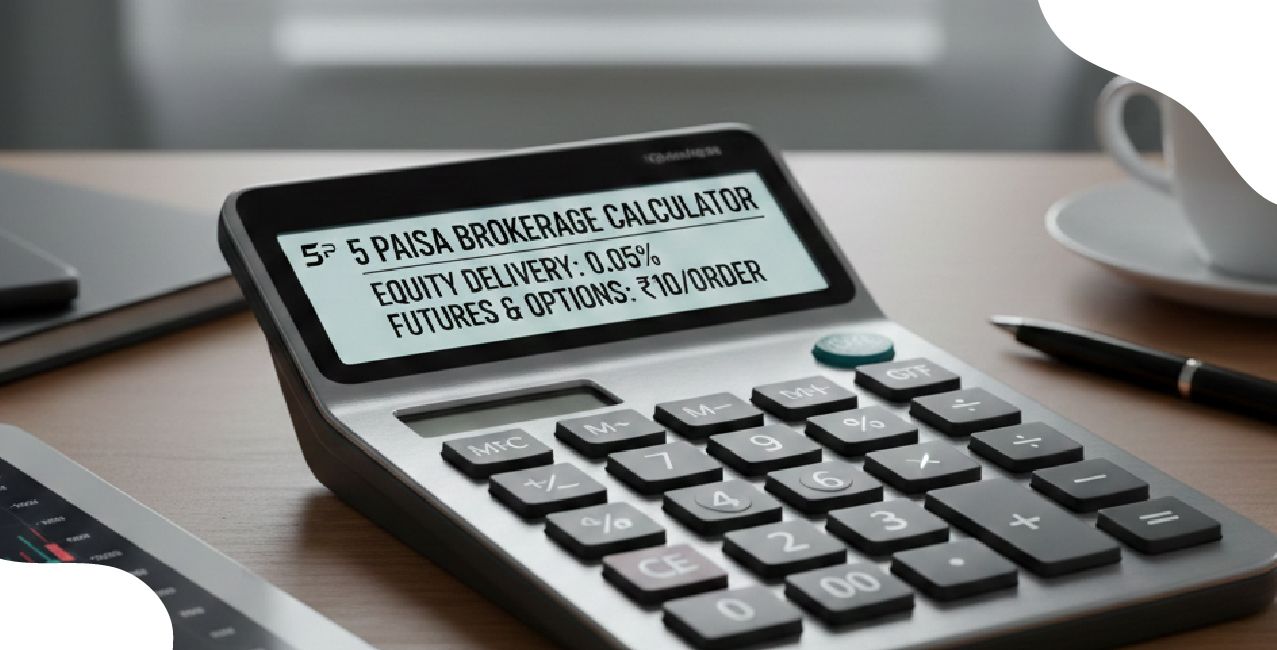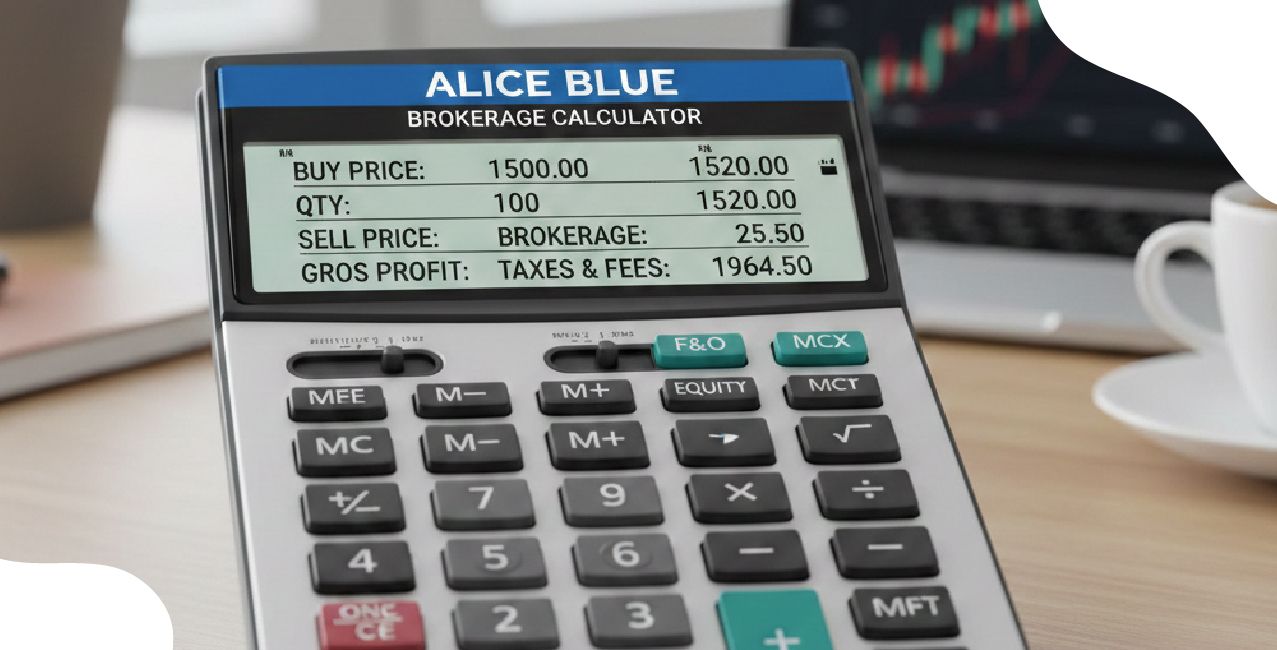What Happens to Your Credit Score After Debt Consolidation?

Check Your Loan Eligibility Now
By continuing, you agree to LoansJagat's Credit Report Terms of Use, Terms and Conditions, Privacy Policy, and authorize contact via Call, SMS, Email, or WhatsApp
Raghav was a 28-year-old IT professional with three credit cards, all maxed out. He owed ₹2,00,000 in total and struggled to keep up with multiple payments. His credit score had dropped to 650, making it hard to get new loans. One day, his friend suggested debt consolidation – taking one loan to pay off all his credit card debts.
Raghav was confused. "Will this help or hurt my credit score?" he wondered. He applied for a ₹2,00,000 personal loan at 12% interest. The bank did a hard inquiry, and his score dropped to 645. However, his credit utilisation decreased from 90% to 0% after paying off his cards.
For the next six months, Raghav paid his EMIs on time. His score slowly climbed to 680. But then, he missed one payment, and it fell to 660. He was shocked! "Why did this happen?" he thought. What happens to your credit score after debt consolidation? Does it always go up? Can mistakes make it worse? Let's find out in this blog.
Debt consolidation can slightly lower your credit score at first because of a loan application and a new credit account. But over time, if you make regular payments and keep your credit card balances low, your score is likely to improve. It is all about managing your debt wisely and staying disciplined. Here is a detailed breakdown:
Initial Impact:
1. Hard Enquiry
When you apply for a debt consolidation loan, the lender checks your credit report. This is called a "hard enquiry." A hard enquiry can lower your credit score by a few points, usually between 3 to 5 points.
Let's look at an example of a boy named Santosh:
Before Loan | After the Loan Application |
Credit Score: 700 | Credit Score: 695 |
Number of Enquiries: 0 | Number of Enquiries: 1 |
In this example, Santosh's credit score dropped by 5 points after applying for the loan. This is normal and usually temporary. If Santosh makes all his payments on time, his credit score can go up again.
Read More – The Hidden Benefits of an Improved Credit Score Post-Consolidation in 2025
Remember, applying for several loans in a short time can lead to more hard enquiries, which may lower your score further.
To minimise the impact, it is best to apply for one loan at a time and make payments on time.
2. New Credit Account
When you open a new loan or credit card, it gets added to your credit report. This can lower the average age of your credit accounts, which may slightly reduce your credit score. The length of your credit history makes up about 15% of your FICO Score.
Let's look at an example of a boy named Adrash:
Account | Age (Months) |
Credit Card 1 | 60 |
Credit Card 2 | 36 |
Credit Card 3 | 24 |
Total Age | 120 |
Average Age | 40 |
Now, Adarsh opens a new credit card:
Account | Age (Months) |
Credit Card 1 | 60 |
Credit Card 2 | 36 |
Credit Card 3 | 24 |
Credit Card 4 | 0 |
Total Age | 120 |
Average Age | 30 |
By adding a new account with zero age, Adarsh's average account age drops from 40 to 30 months. This decrease can slightly lower his credit score. However, if Adarsh makes all his payments on time and keeps his balances low, his credit score can improve over time.
3. High Credit Utilsation
When you move a large balance to a new credit card, your credit utilisation rate may go up. This rate shows how much of your available credit you are using. A high utilisation rate can lower your credit score.
Experts recommend keeping your credit utilisation below 30% to maintain a good credit score.
Let's look at an example:
Credit Card | Credit Limit | Balance | Utilisation |
Card A | ₹50,000 | ₹10,000 | 20% |
Card B | ₹50,000 | ₹5,000 | 10% |
Total | ₹1,00,000 | ₹15,000 | 15% |
Now, if you transfer ₹30,000 to a new card:
Credit Card | Credit Limit | Balance | Utilisation |
Card A | ₹50,000 | ₹10,000 | 20% |
Card B | ₹50,000 | ₹5,000 | 10% |
Card C (New) | ₹30,000 | ₹30,000 | 100% |
Total | ₹1,30,000 | ₹45,000 | 34.6% |
In this case, your overall utilisation increases to 34.6%, which is above the recommended 30% threshold. This higher rate can negatively impact your credit score.
To maintain a healthy credit score, try to keep your credit utilisation below 30%.
Long-Term Benefits
1. Reduced Credit Utilisation
Debt consolidation means taking a new loan to pay off multiple credit card debts. This helps reduce your credit utilisation ratio, which is the percentage of credit you are using compared to your total credit limit. A lower utilisation ratio can improve your credit score.
Here is an example:
Credit Card | Balance Owed | Credit Limit | Utilisation |
Card A | ₹50,000 | ₹1,00,000 | 50% |
Card B | ₹30,000 | ₹1,00,000 | 30% |
Card C | ₹20,000 | ₹1,00,000 | 20% |
Total | ₹1,00,000 | ₹3,00,000 | 33.3% |
After consolidating with a ₹1,00,000 loan:
Credit Card | Balance Owed | Credit Limit | Utilisation |
Card A | ₹0 | ₹1,00,000 | 0% |
Card B | ₹0 | ₹1,00,000 | 0% |
Card C | ₹0 | ₹1,00,000 | 0% |
Total | ₹0 | ₹3,00,000 | 0% |
Now, your credit utilisation is 0%, which can positively impact your credit score. Remember to keep old credit cards open and make timely payments on the new loan to maintain a good credit profile.
2. On-Time Payments
Paying your consolidated loan on time is very important for your credit score. Payment history makes up about 35% of your credit score, making it the most significant factor in credit scoring models. Consistently making on-time payments shows lenders that you are responsible with money. This can help improve your credit score over time.
Here is an example:
Month | Payment Due (₹) | Payment Made (₹) | On-Time? | Credit Score Change |
Jan | ₹8,500 | ₹8,500 | Yes | +10 points |
Feb | ₹8,500 | ₹8,500 | Yes | +10 points |
Mar | ₹8,500 | ₹8,500 | Yes | +10 points |
Apr | ₹8,500 | ₹8,500 | Yes | +10 points |
Mar | ₹8,500 | ₹0 | No | -40 points |
In this table, making payments on time each month leads to small increases in the credit score. However, missing a payment in May causes a significant drop in the credit score. This shows how important it is to pay on time.
To keep your credit score healthy, always pay your loans on time. You can set up automatic payments or reminders to help you stay on track.
3. Improved Credit Score
Debt consolidation can help improve your credit score over time. When you combine multiple debts into one loan and make regular payments, your credit score may go up. This happens because you reduce your credit card balances and show that you can pay on time. Even though your score might drop a little at first due to a credit check, it usually gets better as you keep paying.
Here is a simple example:
Month | Credit Card Balance | Loan Balance | Credit Score |
0 | ₹2,00,000 | ₹0 | 650 |
1 | ₹0 | ₹2,00,000 | 640 |
3 | ₹0 | ₹1,80,000 | 660 |
6 | ₹0 | ₹1,50,000 | 680 |
12 | ₹0 | ₹1,00,000 | 700 |
18 | ₹0 | ₹50,000 | 720 |
24 | ₹0 | ₹0 | 740 |
In this example, the credit score starts at 650. After consolidating debt, it drops slightly to 640. But as you make payments, the score increases to 740 over two years. This shows that paying on time and reducing debt can improve your credit score.
Important Considerations
1. Responsible Debt Management
Debt consolidation can be helpful, but only if you manage it responsibly.
Let’s look at Suresh’s example:
Suresh had three credit cards with a total debt of ₹1,50,000. He took a consolidation loan of ₹1,50,000 at 10% interest for 12 months. His monthly EMI was ₹13,200. For the first 4 months, he paid on time. Then, he missed two payments. This caused late fees and increased his balance. His credit score also dropped.
Month | EMI Paid | Missed Payment | Balance Remaining | Credit Score |
1 | ₹13,200 | No | ₹1,36,800 | 650 |
2 | ₹13,200 | No | ₹1,23,600 | 655 |
3 | ₹13,200 | No | ₹1,10,400 | 660 |
4 | ₹13,200 | No | ₹97,200 | 665 |
5 | ₹0 | Yes | ₹97,200 + ₹500 | 640 |
6 | ₹0 | Yes | ₹97,200 + ₹1,000 | 620 |
7 | ₹13,200 | No | ₹84,000 | 630 |
This shows that missing payments can hurt your credit score and increase your debt. To benefit from debt consolidation, make all payments on time.
2. Avoid Over-Utilisation
Avoiding over-utilization of your credit limit is important for maintaining a good credit score. Credit utilisation refers to the percentage of your available credit that you are using. Experts recommend keeping this ratio below 30% to show responsible credit management. High utilisation can signal to lenders that you are over-reliant on credit, potentially lowering your credit score.
Let's consider Meenakshi's example:
Credit Card | Credit Limit | Balance | Utilisation (%) |
Card 1 | ₹50,000 | ₹10,000 | 20% |
Card 2 | ₹30,000 | ₹9,000 | 30% |
Card 3 | ₹20,000 | ₹8,000 | 40% |
Total | ₹1,00,000 | ₹27,000 | 27% |
In this scenario, Meenakshi's overall credit utilisation is 27%, which is within the recommended limit. However, Card 3 has a utilisation of 40%, exceeding the ideal threshold. To improve her credit health, Meenakshi should aim to reduce the balance on Card 3 to bring its utilisation below 30%.
Also Read - Will Debt Consolidation Hurt Your Credit Score? Everything You Need to Know
By managing her spending and paying down balances, Meenakshi can maintain a healthy credit utilisation ratio, positively influencing her credit score.
3. Monitor Your Credit Report
Regularly checking your credit report is important to maintain a good credit score. Sometimes, mistakes can appear on your report, such as incorrect personal details or wrongly reported payments. These errors can lower your credit score and affect your ability to get loans or credit cards. By reviewing your credit report, you can spot and fix these mistakes early. Checking your credit report is a soft enquiry and does not affect your credit score.
Let's look at Manav's example:
Month | Action Taken | Credit Score |
Jan | The credit report shows a ₹50,000 loan | 700 |
Feb | Manav disputes the error | 700 |
Mar | Loan removed from report | 750 |
In January, Manav noticed a ₹50,000 loan on his credit report that he did not take. He disputed this error with the credit bureau in February. By March, the loan was removed, and his credit score improved from 700 to 750.
To check your credit report in India, you can visit the official websites of credit bureaus like CIBIL, Experian, Equifax, or CRIF Highmark. You are entitled to one free credit report per year from each bureau. If you find any errors, you can raise a dispute through the bureau's website.
By monitoring your credit report regularly, you can ensure that all information is accurate and take steps to correct any mistakes, helping you maintain a healthy credit score.
Conclusion
Debt consolidation can help you manage your loans and credit cards better, but it also affects your credit score in different ways. At first, your score may drop a little because of the loan application and new credit account. However, if you pay the new loan on time and keep your credit card balances low, your score can improve over time. The key is to use debt consolidation wisely.
When you combine multiple debts into one loan, it lowers your credit utilisation, which is good for your score. But if you keep using your credit cards after consolidation, your debt can increase again, hurting your score. Always try to pay your EMIs on time because missed payments can damage your credit history. It is also important to check your credit report regularly for mistakes. Sometimes, wrong details can lower your score without any fault of yours. Fixing these errors can help improve your score.
Debt consolidation is not a magic solution. It works only if you control your spending and make payments on time. If you do this, your credit score will slowly go up, making it easier to get loans in the future. But if you misuse it, your debt and credit problems can get worse. So, plan carefully and stay disciplined to make debt consolidation work for you.
FAQs
1. Does debt consolidation hurt my credit score at first?
Yes, your score may drop slightly because of the loan application and new account, but it can improve over time if you make payments on time.
2. How does debt consolidation help my credit score?
It helps by lowering your credit utilisation when you pay off multiple debts, and making regular on-time payments improves your payment history.
3. Should I close old credit cards after consolidation?
No, keeping them open helps maintain a longer credit history, while closing them can reduce your credit limit and hurt your score.
4. Can I apply for multiple loans to consolidate debt?
No, applying for too many loans can lower your score further, so it is better to apply only for one suitable loan.
5. How long does it take to see credit score improvement?
You may see some improvement in a few months with consistent payments, but full recovery can take 1-2 years of responsible repayment.
About the author

LoansJagat Team
Contributor‘Simplify Finance for Everyone.’ This is the common goal of our team, as we try to explain any topic with relatable examples. From personal to business finance, managing EMIs to becoming debt-free, we do extensive research on each and every parameter, so you don’t have to. Scroll up and have a look at what 15+ years of experience in the BFSI sector looks like.
Subscribe Now
Related Blog Post
Recent Blogs
All Topics
Contents
Quick Apply Loan
Consolidate your debts into one easy EMI.
Takes less than 2 minutes. No paperwork.
10 Lakhs+
Trusted Customers
2000 Cr+
Loans Disbursed
4.7/5
Google Reviews
20+
Banks & NBFCs Offers
Other services mentioned in this article








